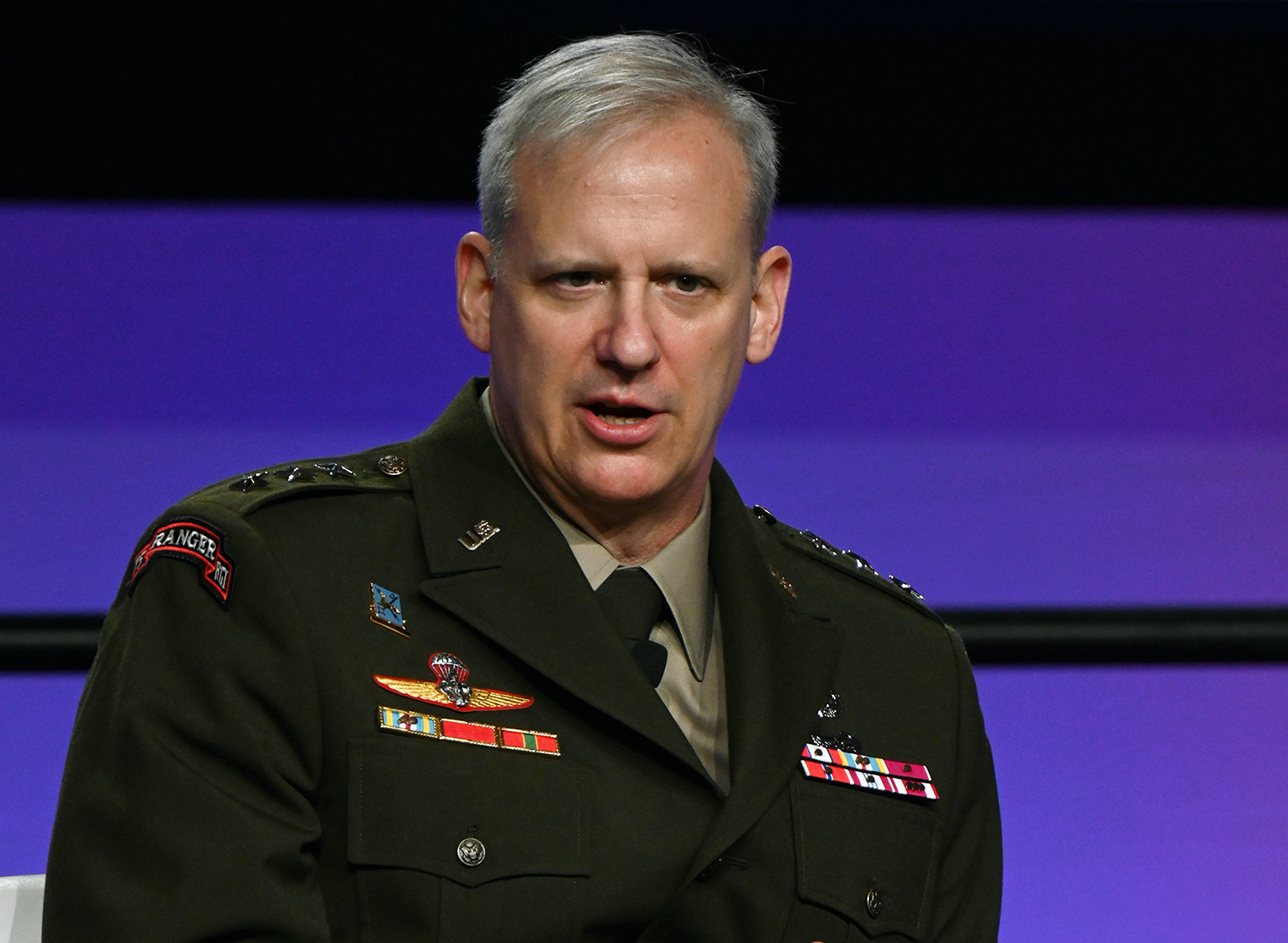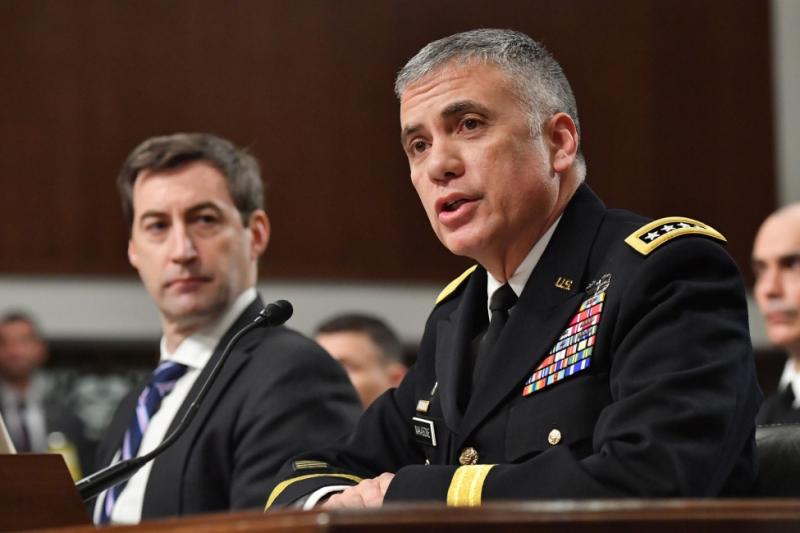
The director of the Defense Intelligence Agency described the sharing of information and intelligence between the United States and the Ukrainians as “revolutionary in terms of what we can do” at a Thursday congressional hearing.
Army Lt. Gen. Scott Berrier told the House Armed Services subcommittee on intelligence that he could go into greater detail on how this is being done in a closed session.
Army Gen. Paul Nakasone, who heads both Cyber Command and the National Security Agency, said that “in my 35 years” he has never seen a better sharing of accurate, timely and actionable intelligence than what has transpired with Ukraine.
The value of sharing information and intelligence with allies is that it “builds coalitions” and can “shine a light on disinformation” campaigns like the one Russia used to lay the groundwork for their invasion, Nakasone added. The question came down to “how do we share information that is relevant … and usable by the Ukrainians” in the conflict.
When asked specifically about “deep fakes,” including a recent faked video where Ukrainian President Volodymyr Zelensky is telling his countrymen to lay down their arms, Nakasone said, NSA “is working to understand the key pieces of what is real and what is fake” and pass that information on to other parts of the Pentagon, the executive branch and the private sector where appropriate.
“We continue to watch very carefully and react quickly” to these efforts to spread lies and add to the confusion over what is actually happening in Ukraine and around the world.
Rep. Austin Scott, (R-Ga.), said, “the world has benefitted from declassifying that information” about Russian intentions in Ukraine and its attempts at “deep fakes” and “false flags” to tilt the information campaign in the Kremlin’s favor.
Nakasone added the “secret sauce” for NSA’s success has been its ability to work outside the country, seeing “what our adversary is doing” and how that can affect the United States. He said the nation needs platforms as established as Air Force KC-135s, space satellites and sensors and on-the-ground collection to be effective.
As to whether one person should continue as the senior officer in Cyber Command and also direct the NSA, Ronald Moultrie, undersecretary for intelligence and security, said there was “sentiment on both sides not to do any harm” if the decision was made to split the responsibilities apart.

Cyber Command was established in 2010.
Nakasone said having the command and agency under a single control provides a “unity of effort” and agility to respond to everything from problems with Iran to ransomware attacks and Russian aggression in Ukraine.
When the question of establishing a new subordinate command to coordinate U.S. information operations in CYBERCOM was raised at the hearing, Nakasone said, “we need more information ops trained personnel” coming from the services. “That’s what we got to get to first” before establishing a new command.
As to how DIA should go about buying “open source” material – imagery and data – for its use, Berrier said the agency was developing questions about the scope of the purchase and whether it could be limited to buying what is needed only when it is needed. “There are open source [materials] that can help us in Afghanistan,” he added.
Right now, the United States is conducting over-the-horizon intelligence, surveillance and reconnaissance in Afghanistan that has major limitations, outgoing Marine Corps Gen. Kenneth McKenzie told Congress this week.
Rather than asking a direct question of Berrier, Scott said he believed DIA should also be gathering information now on the impact of the war in Ukraine on the world food market since Kyiv has exported in the past “50 million metric tons” of wheat and was “the largest supplier to the World Food Program.”
Compounding the problem is “Russia is saying it’s not going to export grains” or fertilizers and the same is true with its partner Belarus, said Scott. By shutting down the Black Sea grain export market that includes corn, barley, and sunflower seeds as well as wheat and fertilizer, “Vladimir Putin has started World War III when it comes to food supply.”
He noted availability and rising costs are already having an effect on nations like Sri Lanka, 4,000 miles away from the fighting.
Scott added he has discussed with regional combatant commanders the impact of the war on food supply in their areas of responsibility.
The Washington Post in an editorial Friday noted “the loss of some of these crops cannot be made up overnight, because it takes months to plant and harvest grains. In many ways this is harder to rectify than the oil supply crisis.”





